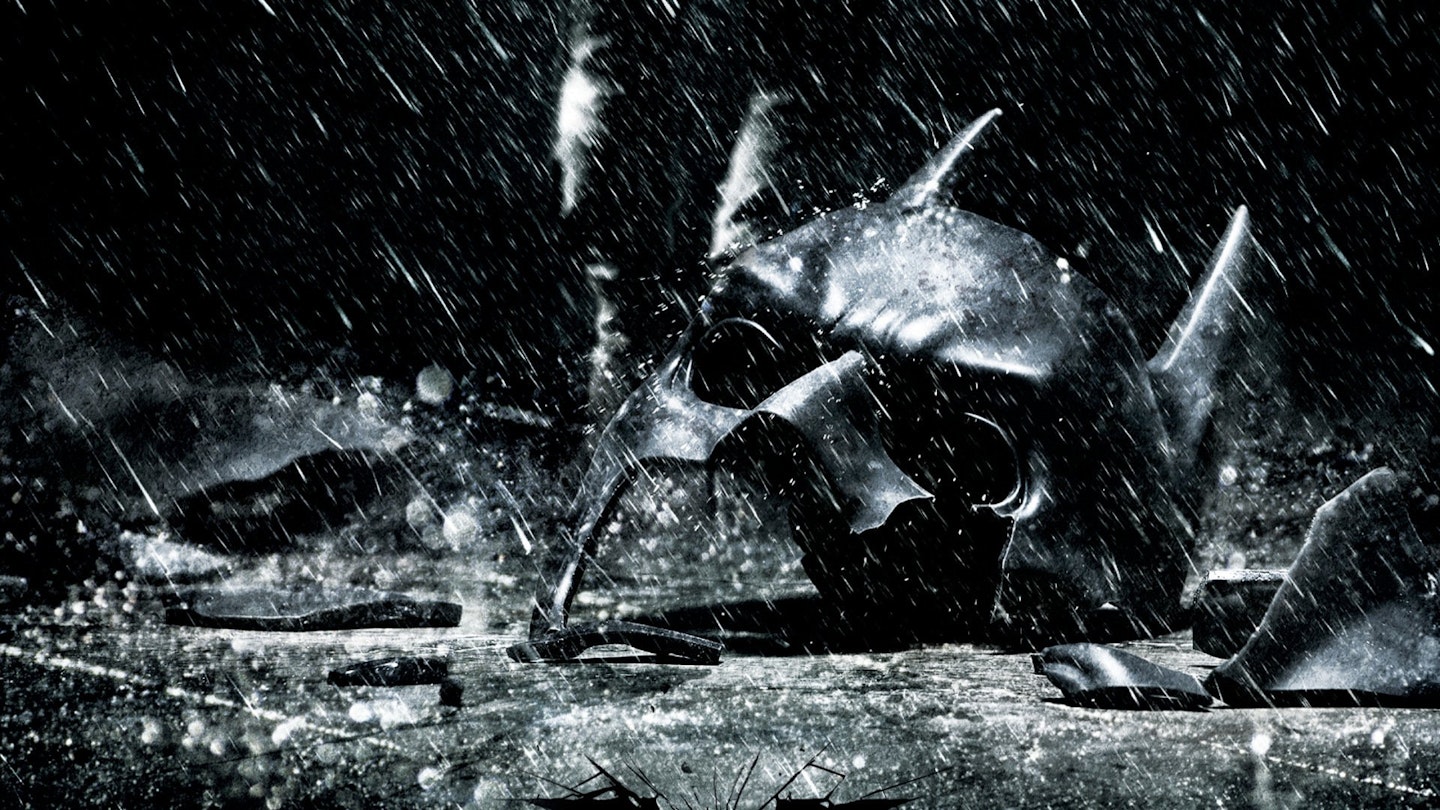The Joker. Batman. Two psychos at war in a city on the brink. Christopher Nolan doesn’t see The Dark Knight as another superhero sequel. It’s a crime epic: the Heat of comic-book movies.
*This article was first published in the July **2008 issue of *Empire magazine. Subscribe today{
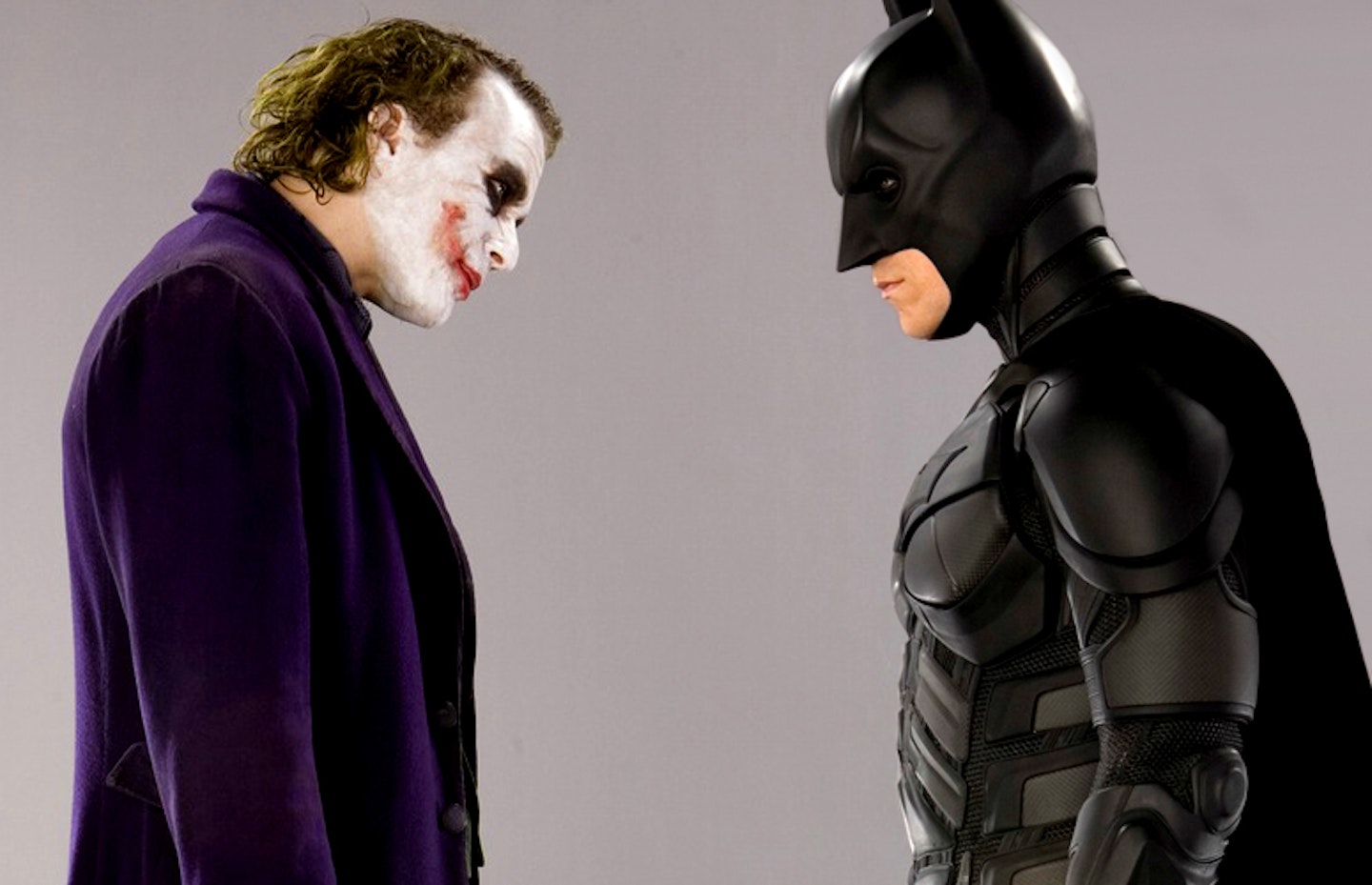
CHRISTOPHER NOLAN PICKED UP HIS FIRST CAMERA WHEN HE WAS EIGHT YEARS OLD. It was while he and his family were living in Chicago, and he'd co-opted his father's Super-8 to film the stiff-limbed adventures of his action figures. One toy-sized blockbuster, as the director remembers, involved blowing up his Millennium Falcon with a banger.
Close to 30 years later, Nolan is back in Chicago. He's back behind a camera - an IMAX camera, in fact, for certain key scenes of his latest larger-than-life opus. And this time he's blowing up an entire five-storey building, located on the city's outskirts, for real. He's also flipping an articulated, 18-wheel lorry, trailer-over-cab, in a genuine downtown thoroughfare. And today, August 24, 2007, he's cordoned off the busy LaSalle Street in the heart of Chicago's financial district to enact the elaborate panic and Brownian crowd-chaos of an assault on a Gotham memorial service (for whom? No-one's saying, but a wreath-framed picture gives the game away; we'll just say it's someone important). It's a feat which involves the polite-but-firm diversion of irked locals ("Yeah! Move off your own streets! Chop chop!" barks one man sarcastically), delicate negotiation with, as one teamster puts it, some "really angry po-lice", and the coordination of hundreds of extras who must cower and scream as thunderous rifle clacks echo around the brickwork.
The day before, just hours after Empire's plane screeched down an O'Hare runway, we witnessed a tornado whipping into downtown Chicago, so immense and fierce it turned the mid-afternoon sky into a, no pun intended, dark night. We wouldn't have been surprised if Nolan had orchestrated that show, too.
As you'd expect, the director isn't trying here to merely outdo his plastic-spaceship-exploding antics of yore during his last extended visit to Chicago. Or, if you prefer, Gotham. Here, now, he's upping the ante like never before. This is a Nolan first: a sequel. And, as everybody knows, sequels mean bigger, better, more, harder, faster – and of course, darker. Much darker. With Batman Begins, he rescued and reshaped a franchise with something that was arguably a comic-book-movie masterpiece. Now he has to improve on that.
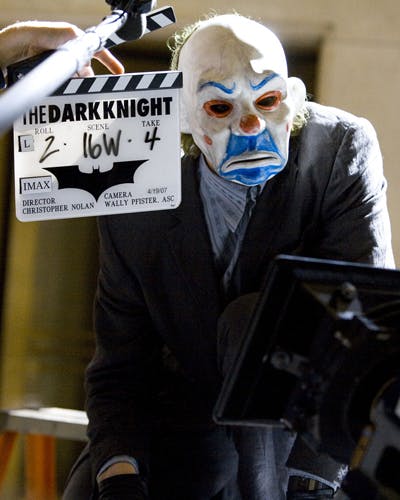%20

 "Otherwise," as he puts it, "why bother? It's an interesting motivation. And quite daunting..."
"Otherwise," as he puts it, "why bother? It's an interesting motivation. And quite daunting..."
HONG KONG. NIGHT. Bruce Wayne is clad in black body armour, crouching on the ledge of a neon-tinted skyscraper. He pulls on a twin-pronged helmet. Now he is the Batman. With a large, boxy rifle he fires a glob of gel at a window some storeys down on an adjacent office tower. The glistening, snot-like substance contains a small timed explosive. Then Batman base-jumps from the ledge, unfurling his black, parachute-fibre cape, and swoops towards the window. It explodes. Glass-shards fly. The Dark Knight makes his noisy entrance, with small-arms fire as his applause, and angry security guards his audience.
The lights go up. "What did you think?" asks Christopher Nolan. The sequence takes place in a real location, photographed with pinsharp IMAX clarity; there's no model-work on show; no obvious digital FX. The first film's credo of making everything as rooted in reality as possible has been strictly adhered to, and with around 60 percent of the sequel filmed on location (compared to Begins mostly being shot on stage), those roots have wormed even deeper. What did we think? We think you'll believe a man can glide...
Eight months and one day after bystanding the chaos on LaSalle Street, Empire has been invited by Nolan to his suburban Burbank abode, also his editorial base of operations, where he's just "basically locked the cut" of The Dark Knight. He doesn't honestly seem too concerned about what we think; when we sit under a sunshade on the edit-suite patio, he is relaxed, calm, confident and in good humour. "It's going very well," he says. "I'm quite excited to get finishing it now... The action scenes are just huge and amazing and you've never seen anything like it!" he half-jokes.
Despite Batman Begins' success, and the obvious tease at that movie's end, it feels a little strange to be talking to this particular film-maker about returning at a studio's behest to territory he's already covered. Empire wonders if a writer/director so celebrated for playing with narrative form - this is the man whose Memento was structured in reverse chronological order - had issues with the potential limitations of making a sequel.
"It all depends on how you look at it," he says, scratching at blond whiskers on a jawline that's no doubt seen many late nights and early mornings. "There are limitations in terms of having to meet certain expectations and then try to exceed them. So this is probably the first film I've done that is completely linear in form, because that felt very much the way it should follow on from Batman Begins. But I didn't actually see that as a limitation. Taking on a sequel is actually quite liberating. Normally, however you're addressing the material, you have to explain who people are. You have to show certain movements in the narrative in the first third to get to a particular point. With a sequel you don't have to do any of that. You can just jump straight in!"
Both Nolan and his star Christian Bale are keen to point out that we are looking at a rather progressed Batman/Bruce Wayne in this movie. When we speak with Bale on set, the Welsh-born actor maintaining his American twang throughout the interview and answering every question slowly and thoughtfully, staring down at the table with his chin cradled between thumb and index finger, he describes his character as "a slightly more mature Bruce Wayne. He's not reaching for the power that he was reaching for in Batman Begins. He has it. So it's a totally different mindset that he's in. He's somebody having to hold on to and retain power and has to become accustomed to the responsibility that comes with it, instead of being the sort of angry young man who's trying to find a way to hit out without damaging the wrong people. Now you've got somebody who finds himself more needed than ever. That was never the plan. The plan was that he would return to what he could make as much of a normal life as possible. He's finding that it's... He can't escape it, you know?"
Nolan speaks of having plenty of narrative "real estate" freed up by his deshackling from the origin story, allowing him to expand the scope, to add characters like The Joker (Heath Ledger), crusading D.A. Harvey Dent (Aaron Eckhart) and mobster Sal Manero (Eric Roberts) to a mix that already includes love-interest Rachel Dawes (Maggie Gyllenhaal taking over from Katie Holmes, who, as Nolan puts it, "didn't want to come back because of a scheduling conflict"), good cop Lt Gordon (Gary Oldman), wry butler Alfred (Michael Caine) and Wayne Enterprises honcho Lucius Fox (Morgan Freeman). But the biggest strength of Batman Begins was that it was the first Batman movie to focus on Batman himself, and not be seduced by all those colourful villains and supporting characters. Also, the biggest weaknesses of comic-book sequels generally is their tendency to overstuff the story with bad guys - to whit, Spider-Man 3 and the execrable Batman & Robin.
"Yes, but the ambition has to be to make a film that in some way moves on and develops the world you're in," argues Nolan. "Otherwise you're just making a TV show - you're just making episodes of the same thing. When a sequel's done badly, you then take pot-shots at it and say, 'Why did they stuff all these extra characters in?' But when it works well, whether it's The Godfather Part II or The Empire Strikes Back, nobody complains. You have to try and expand it, and you have to try and do it well. In genre terms, if the first film had a very noirish quality to it, then what we've done with this film is taken on the dynamic of a story of the city, a large crime story. The broader canvas demands more characters to fill it. The audience accepts that type of storytelling where you're looking at the police, the justice system, the vigilante, the poor people, the rich people, the criminals. I'm hoping it's the sort of film that Michael Mann always did very well, like Heat..."
Nolan smiles. "...But with the occasional psychotic clown running through it."
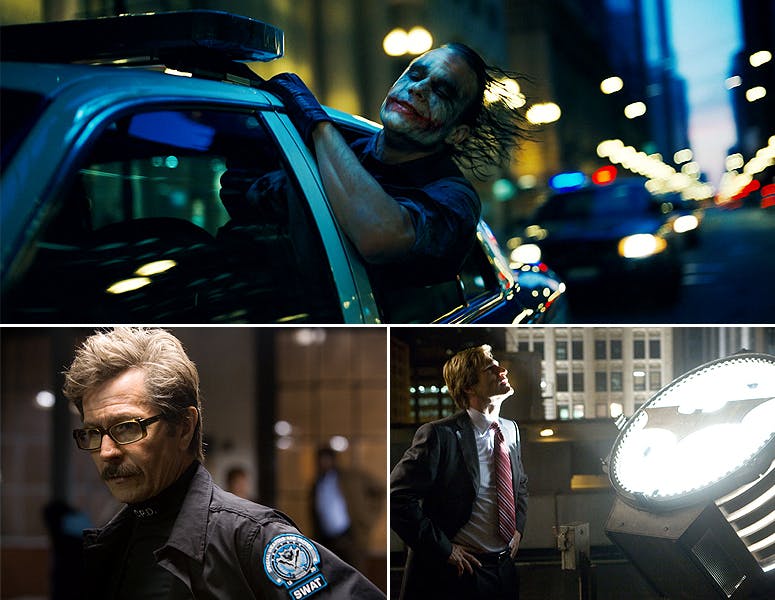%20*Clockwise%20from%20top.%20Heath%20Ledger%20as%20The%20Joker%20in%20full%20flow%20on%20the%20streets%20of%20Gotham.%20Harvey%20Dent%20(Aaron%20Eckhart?auto=format&w=1440&q=80)
WE HAVE, OF COURSE, ALREADY MET THIS PSYCHOTIC CLOWN, both in Empire's January edition, and the opening sequence teaser which trailed the IMAX release of I Am Legend. Aside from offering a tantalising glimpse of Heath Ledger's interpretation of Batman's deadliest enemy, it also surprised many fans who were expecting it to present an origin story, perhaps even directly inspired by Alan Moore's The Killing Joke. Instead it was a smart, darkly comic heist sequence which presented Nolan and Ledger's scarred, punkish Joker as fully-malformed.
"This isn't an origin story for The Joker," insists Nolan. "Our Joker - Heath's interpretation of The Joker - has always been the absolute extreme of anarchy and chaos. And what makes him terrifying is not to humanise him in narrative terms. We didn't want to show what made him do the things he's doing, because then he becomes less threatening. If you look at Hannibal Lecter or someone like that, the more you explain where he came from, the less interesting he is. So for us it was very much a question of not so much dealing with the origins of The Joker, so much as the rise of The Joker. He doesn't have a character arc as such. I like to say he cuts through the movie the way the shark does in Jaws. He just kind of comes and goes and causes complete mayhem."
He certainly poses a whole new challenge for Batman. "It's a funny meeting of these two characters," reflects Bale. "Batman I always kind of view as having this slight urge towards sadism and having to control himself in that, but the fact is, he's got an opponent who's a sadist and a masochist. Batman can punch Joker all he wants and he knows he's actually giving him a great deal of pleasure! So he's a new kind of opponent. It's been very good and entertaining for me to do those scenes with Heath."

 "It's the most fun I've had playing a role. I'm really surprised Chris knew I could do it." *Heath Ledger
"It's the most fun I've had playing a role. I'm really surprised Chris knew I could do it." *Heath Ledger

 Even in reference to his performance as The Joker, the subject of Ledger, who died from an accidental prescription-drugs overdose on January 22, is understandably a sensitive one for his colleagues on The Dark Knight."It's all so fresh in my mind, I'm not comfortable talking publicly about what has happened to him," says Bale.
Even in reference to his performance as The Joker, the subject of Ledger, who died from an accidental prescription-drugs overdose on January 22, is understandably a sensitive one for his colleagues on The Dark Knight."It's all so fresh in my mind, I'm not comfortable talking publicly about what has happened to him," says Bale.
"It was devastating. It's still unbelievable. It's difficult for me to talk about Heath in the past tense," says Aaron Eckhart.
"It's hard to talk about how it's affected me personally," explains Maggie Gyllenhaal, "it's been really hard for me. And the media has shocked me with the way that they've been disrespectful in some ways."
She's referring, at least in part, to speculation in both the press and the blogosphere that taking on the vicious, twisted role of The Joker might have somehow pushed a troubled Ledger over the edge. This is unlikely. It ignores the fact that this was a role Ledger had long since finished with (The Dark Knight wrapped in November), as well as one which, by most accounts, he enjoyed.
Indeed, when Empire met Ledger at the La Salle production base back in August, he had this to say about The Joker: "It's the most fun I've had playing a role. I'm really surprised Chris knew I could do it, or thought that I had something in me like this. And I don't know how he came to cast me. But, yeah, it's the bomb. Definitely the most fun I've had, and the most freedom."
Christian Bale tells one story that certainly bears this out. He recalls their first scene together, where Batman interrogates The Joker down at Gotham P.D. "It was wonderful," Bale says, chuckling slightly, "because you're doing it, and you're into it, and someone in the crew will have a question and it pulls you right out, and you turn around, and they have these two-way mirrors, so everywhere we looked we were looking at ourselves, and you suddenly see what you're looking like to everybody else. And we were just a couple of freaks!" He laughs loudly. "I'm standing there in the suit and he's there, you know, with his Chelsea Smile, and it was just a couple of complete nutters. We both couldn't stop laughing!
"He was very good company, Heath. I really enjoy it when somebody is pushing the work as much as he did. You can see how much he loved it."
Nolan, meanwhile, speaks of his own "huge sense of responsibility to make sure that the film is as good as Heath's performance," and confirms that The Dark Knight will be dedicated to Ledger. He stops shy of predicting that this will stand as Ledger's greatest performance, though. "I think that Heath has some pretty amazing performances under his belt. Certainly, his performance in Brokeback Mountain was what most impressed me of what he'd done, Monster's Ball as well. This performance is completely different from anything he'd ever done before. I just don't think people will even recognise him. He's a completely different guy: the voice, the movements, what's going on in his eyes... It's completely different. I think it's his most iconic performance. In taking on The Joker I suppose that's inevitable, but the fact that he pulls it off... I think it's a pretty stunning piece of work. Honestly."
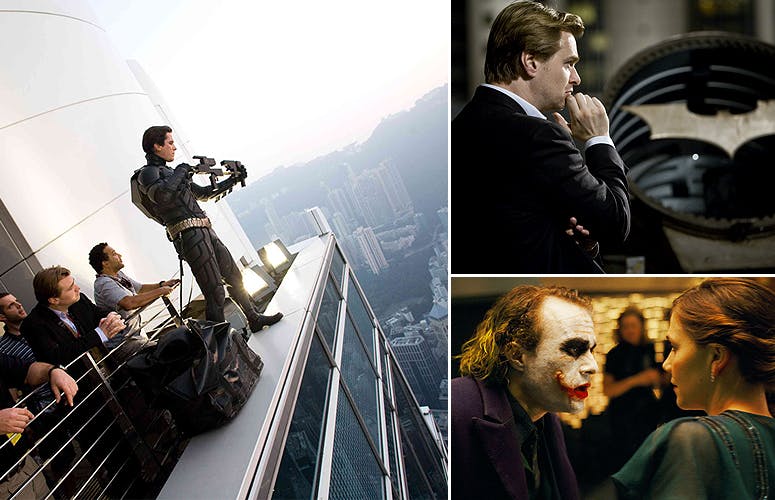%20*Clockwise%20from%20left.%20Christian%20Bale%20prepares%20for%20the%20stunt%20sequence%20in%20Hong%20Kong%20under%20the%20watchful%20eye%20of%20Nolan%20and%20his%20team.%20Christopher%20Nolan%20on%20set.%20Heath%20Ledger's%20Joker%20gets%20up%20close%20and%20personal%20with%20Rachel%20Dawes%20(Maggie%20Gyllenhaal?auto=format&w=1440&q=80)
BACK ON LASALLE STREET, given all this talk of Joker as entropy incarnate, you'd expect to find the Clown Prince Of Crime at the heart of Nolan's organised chaos. Instead, the key player - although not instigator - is Harvey Dent, played by Aaron Eckhart. Dressed in black suit and tie, he strides purposefully through the screaming throng, jaw set, eyes flaring with anger. More gunshots go off, and the crowd scatters, policemen crouching low to the ground, firearms raised. But Eckhart - Dent - doesn't even react. He just walks on, determined.
"I'm the District Attorney," says Eckhart soon after, "so I'm a crime-fighter as well as Batman and Lt. Gordon. While we might not all tackle crime the same way, I think we're all going for the same end, as probably all the divisions in the American legal system do even if they don't always see eye to eye."
Nolan had encountered Eckhart some years before, while considering him for the role of tattooed amnesiac Leonard Shelby in Memento, and thought he was ideal for the part of the crusading D.A.. "Ever since I saw him in In The Company Of Men, I've thought he's an extraordinary actor. He seems so perfect for Harvey Dent because we wanted Harvey to be an all-American, kind of heroic figure; Aaron's got that kind of Robert Redford thing going on. He just embodies that kind of chiselled American hero. He does it so well. You just kind of relax in his presence when he's doing that character. But then there's this sort of edge to it all the way throughout, there's this thing just lurking under the surface..."
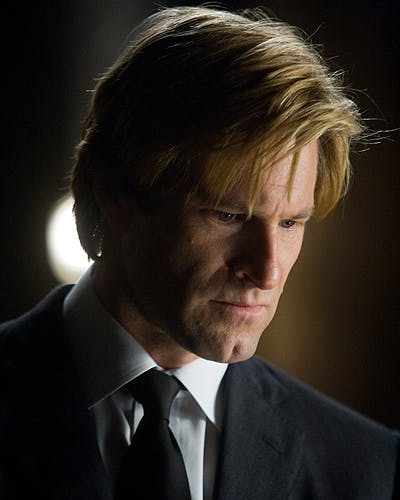%20

 Nolan and his cast are keen to keep a veil of mystery draped over as much of The Dark Knight's plot as possible, but nowhere is that veil more securely drawn than over Eckhart's involvement. Yet it's no big secret that, thanks both to the comic book and Joel Schumacher's first assault on the Batfranchise, Batman Forever, we know that Dent, via some acid-fuelled disfigurement, becomes the ravaged, unhinged and psychotic Two-Face. Still, while Nolan and Warner Bros have been happy to reveal and discuss their take on The Joker, there'll not be even a glimpse of Two-Face before the film's released."It's not something I want to talk about too much," says Nolan when Empire asks how Two-Face looks through the same prism with which he views Batman and The Joker. "You never quite know where you are with a character like Two-Face. It's like in the first film, when we're dealing with Ra's Al Ghul or Scarecrow. It's not Batman, it's not The Joker; there are the characters that everybody knows and then there are the characters that some people know, some don't. And I think it's more fun for people who don't know the character to discover him in the film."
Nolan and his cast are keen to keep a veil of mystery draped over as much of The Dark Knight's plot as possible, but nowhere is that veil more securely drawn than over Eckhart's involvement. Yet it's no big secret that, thanks both to the comic book and Joel Schumacher's first assault on the Batfranchise, Batman Forever, we know that Dent, via some acid-fuelled disfigurement, becomes the ravaged, unhinged and psychotic Two-Face. Still, while Nolan and Warner Bros have been happy to reveal and discuss their take on The Joker, there'll not be even a glimpse of Two-Face before the film's released."It's not something I want to talk about too much," says Nolan when Empire asks how Two-Face looks through the same prism with which he views Batman and The Joker. "You never quite know where you are with a character like Two-Face. It's like in the first film, when we're dealing with Ra's Al Ghul or Scarecrow. It's not Batman, it's not The Joker; there are the characters that everybody knows and then there are the characters that some people know, some don't. And I think it's more fun for people who don't know the character to discover him in the film."
Eckhart is particularly cagey when pressed about the Two-Face side of his performance, but he does describe him as "an angry guy," before elaborating slightly. "He's lost everything that's ever meant anything to him and he can't get it back. He thinks maybe people haven't been doing their jobs, and that's where a lot of his anger comes from. He thinks [what happened to transform him] could have been avoided, so I think he's hurting and has a lot of anger and resentment - all those very human emotions."
This is as much of an insight as anyone will give into the specifics of Nolan and Eckhart's Two-Face, although both Bale and Nolan hint that Dent's deformative destiny is closely wrapped up with that of Batman himself. "He is the partner, he is the heir in Bruce's mind," says Bale. "He is the man who you can trust. There finally is going to be a man in power who actually has a belief in an altruism towards Gotham. He's kind of the great, shining hope. So this is Bruce's answer to what I was talking about earlier. That he never thought [being Batman] was gonna have to be a lifelong pursuit. Finally here's someone who can relieve him of that burden." Says Nolan: "We've tried to make Harvey's story - which is a great, epic sort of tragedy - the backbone of the whole movie."
So it's clear that things don't work out for Batman's big plan.
"Well, you'll have to see the movie!" laughs Nolan. "It might! It might all be very happy" Well, we're used to being surprised by Nolan... "It might be a 25-minute film! That would be a surprise..."
It's all-too-tempting to imagine that Nolan has conceived The Dark Knight as part two of a trilogy; isn't that usually how these things are done? Christian Bale confirms he's signed up for three bouts at Bruce Wayne; Michael Caine says he'll happily return; Aaron Eckhart "can't say" if he'll be back. But Nolan denies that that's how he's thinking.
"I don't know if I'll do another," he says. "They're tricky. It's difficult to name third movies that are any good.
"That's not to say The Dark Knight doesn't leave room for a sequel," he adds, "because it does. Because you want the story to linger, you want it to carry on in your mind."
We'd be astonished if he doesn't come back for at least one more Batman and take up the challenge of bettering himself yet again. And he clearly enjoys working at this level, on this scale. It really is, he admits, like reliving his childhood days with Dad's Super-8.
"The weird thing is - this might sound a bit mad, hopefully not - all the films I've ever worked on, they've all felt the same scale, in a weird way. When you're eight years old and your using bangers to blow up your Millennium Falcon, that feels as real as flipping a truck on a real street. It really is a question of scale, and just as you've grown and made bigger films, there's still that same fascination with, ‘what's that shot and how is it going to affect the audience?' I always think of my job on-set as kind of just being the audience, just being very, very focussed on what's in the frame.
"But you do have to step back from it every now and again, and really take a look at what you're doing. Just for the fun of it, just for the enjoyment of saying, ‘Wow, this is such a colossal enterprise! This is just the best job in the world, it's the best thing I could possibly be doing!'"
These don't sound like the words of a man who's never coming back, do they?
Anatomy Of A Scene.
Christopher Nolan talks us through The Dark Knight's iconic truck-flipping sequence.
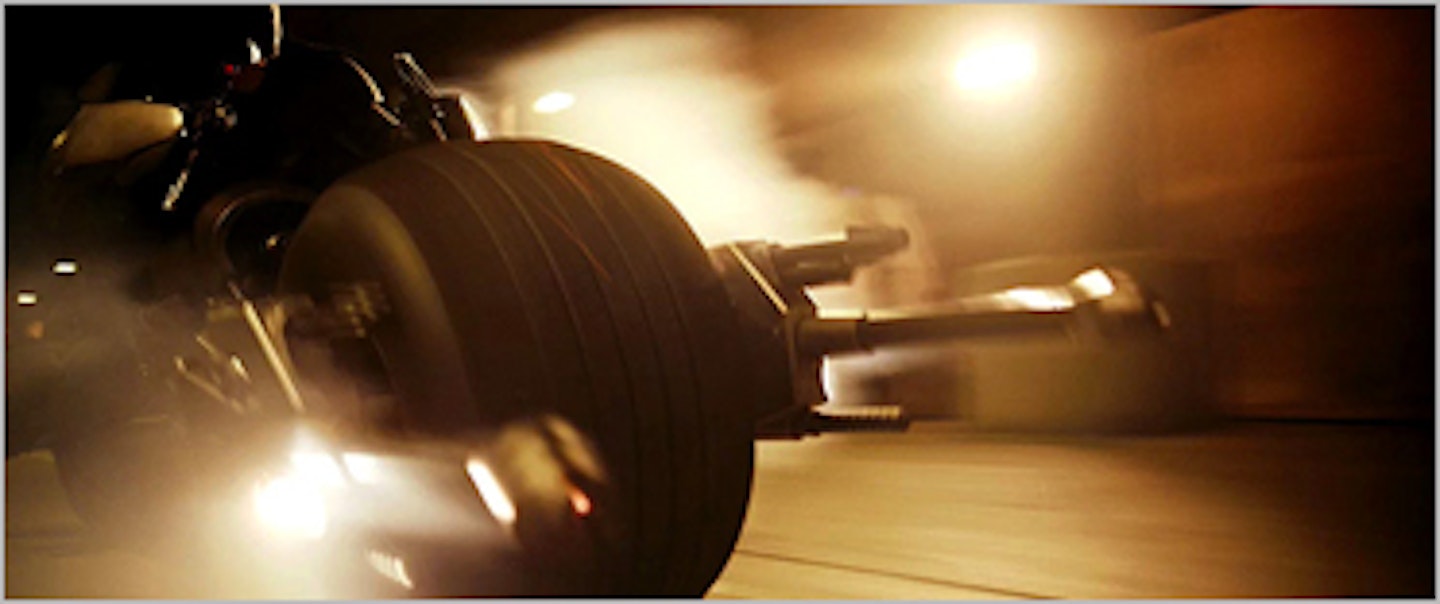
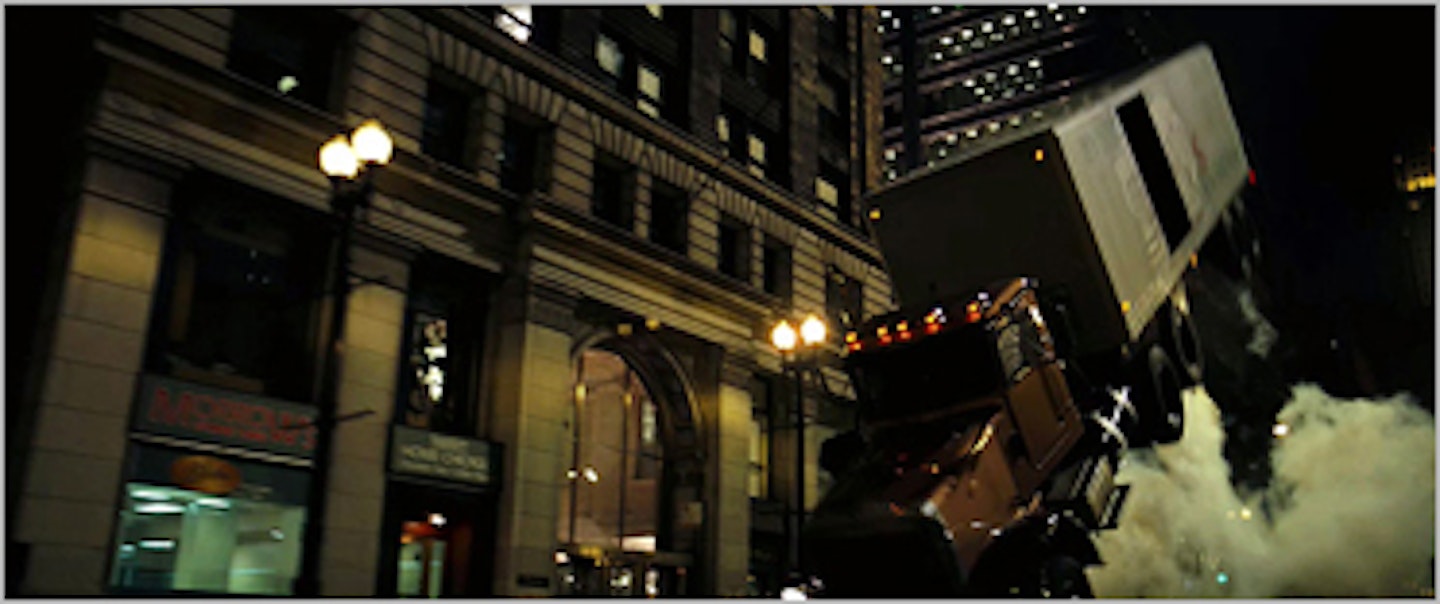
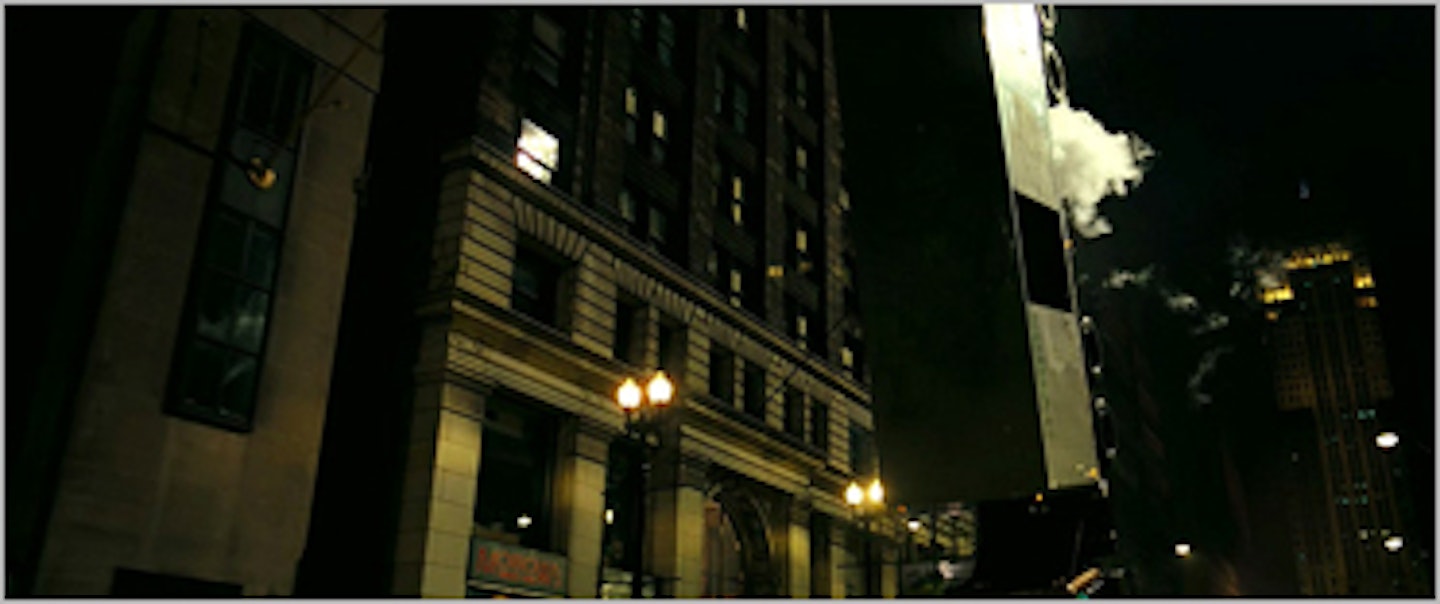
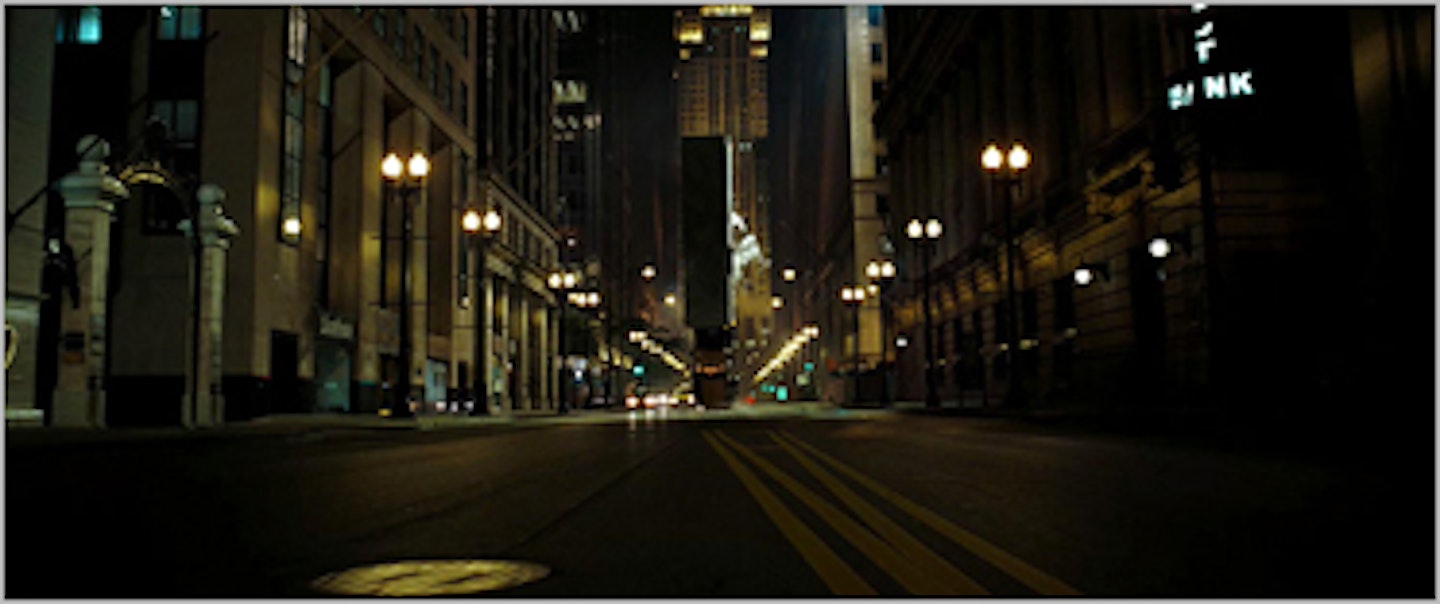
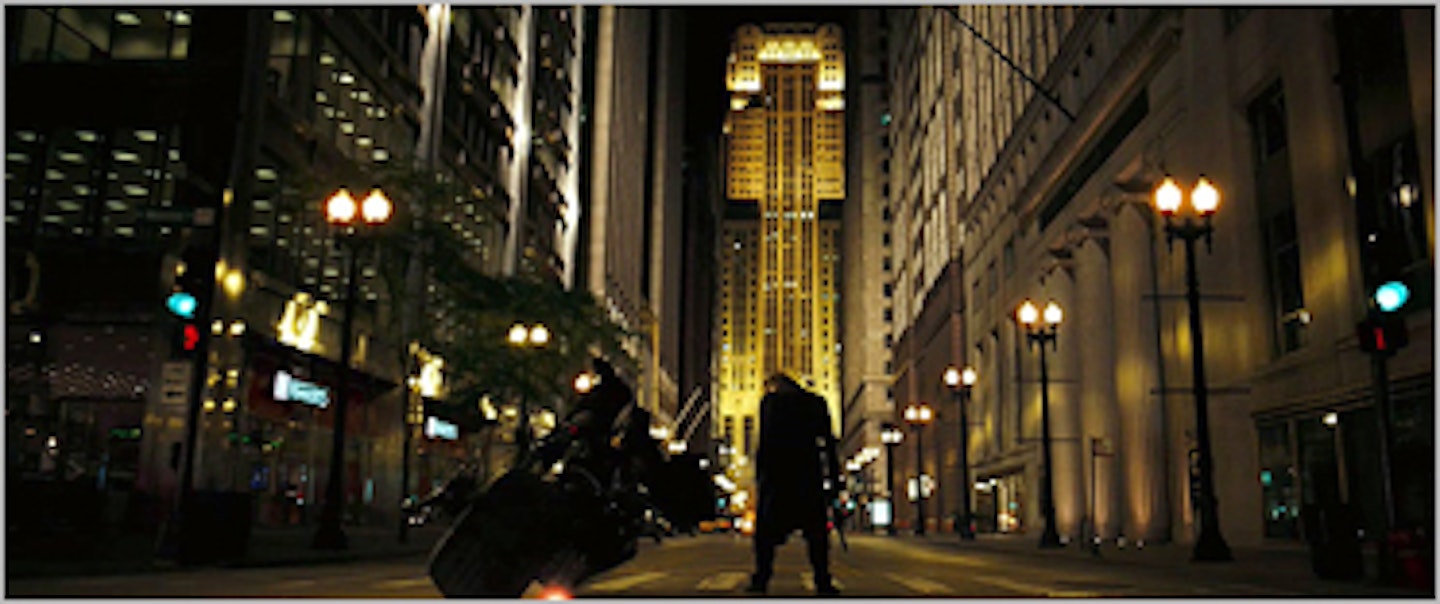
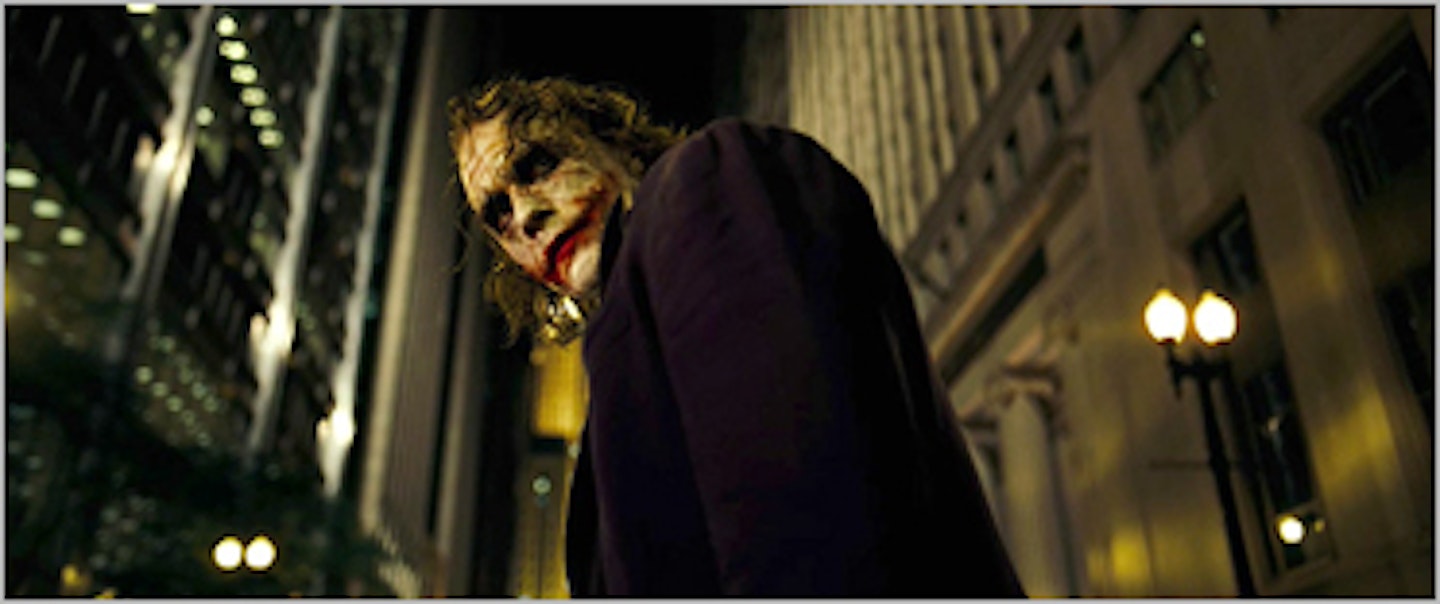
6"I've certainly tried to humanise the action more than we did in the first film. In Batman Begins, we certainly tried to do that but I don't think I realised how important it was until I was finished with that film and I had time to see it. It's so much more about the people involved in the action than the actual stunt. Because the truck-flipping is a very beautiful thing, visually - it was a very exciting thing to watch - but if you're not interested in who the guy is driving it, it's kind of meaningless. And so in this action set piece, you're very interested in the guy who's driving it and it becomes kind of a great moment. It just amplifies what you're able to do."
 ![The Joker, Batman and Bane] Go back
![The Joker, Batman and Bane] Go back
Head back to our Dark Knight trilogy hub for more exclusive features, interviews and competitions.
 ![Empire Dark Knight Rises iPad Edition] The iPad Edition
![Empire Dark Knight Rises iPad Edition] The iPad Edition
For the full story, download our collector's edition on iPad.
